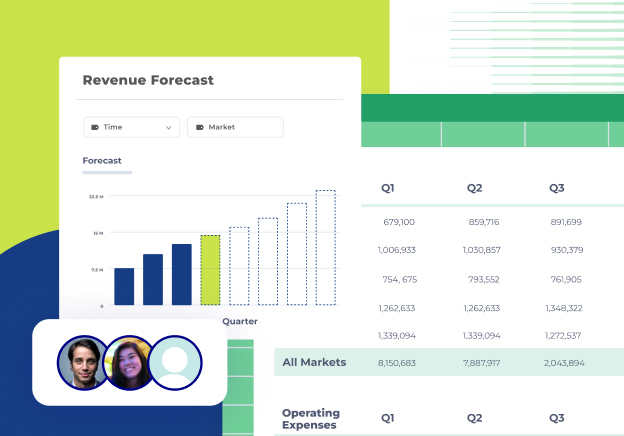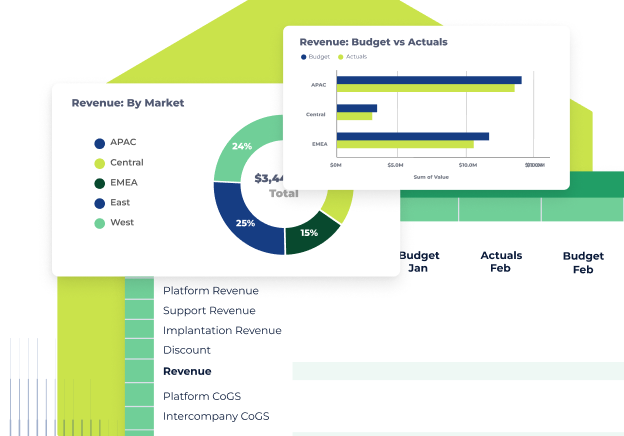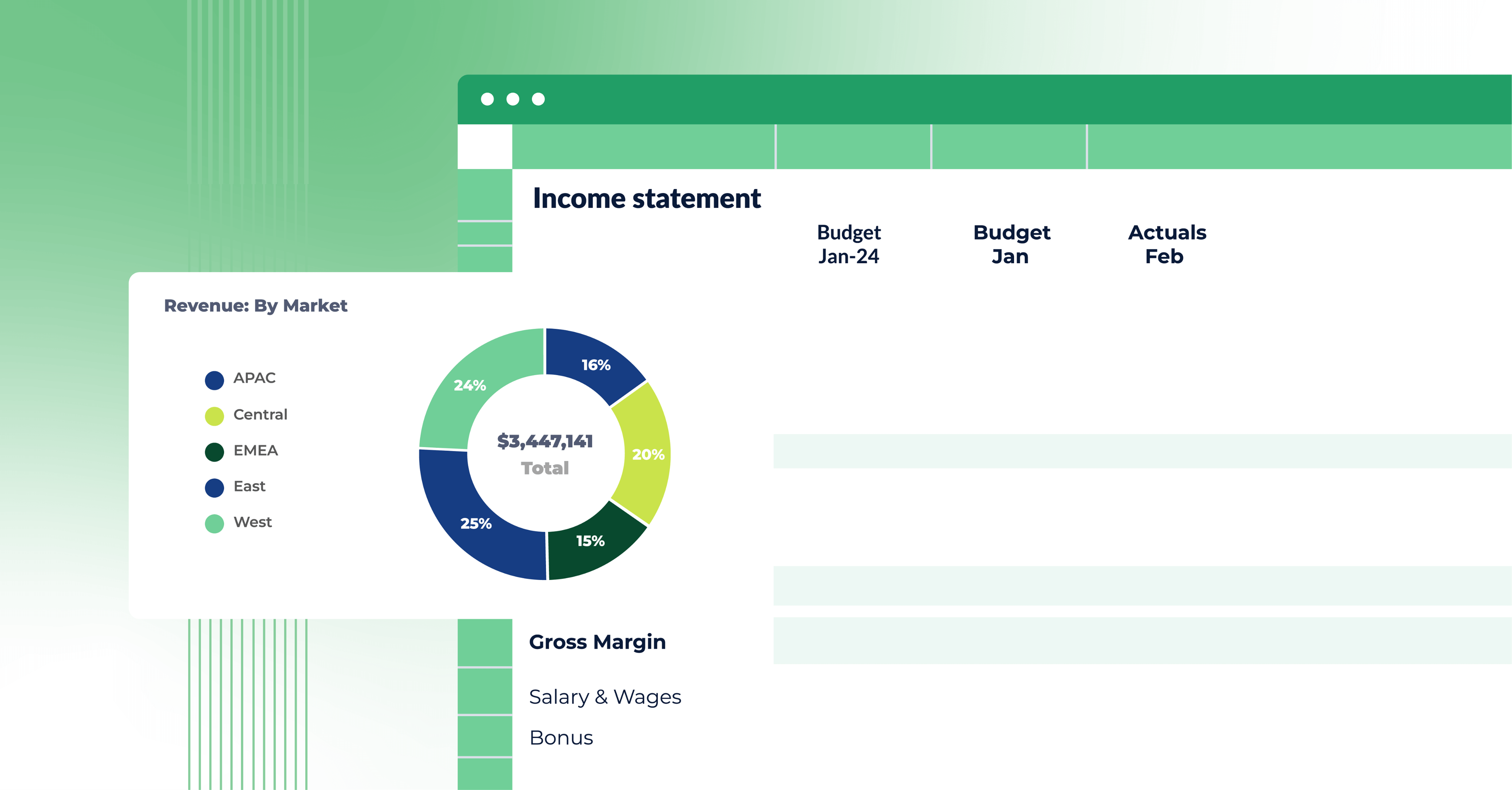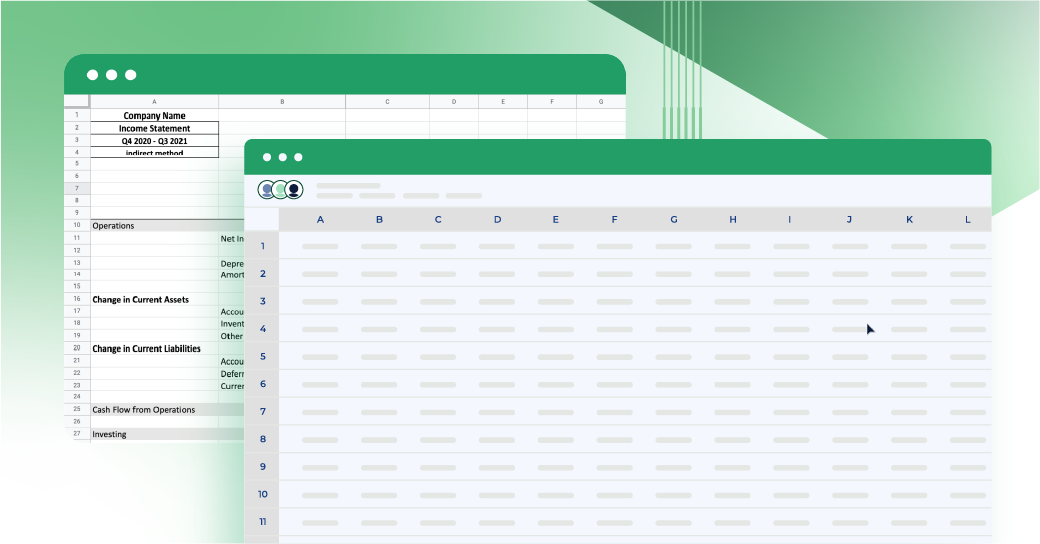The role of budget owners
Budget owners are the creators and enforcers of fund allocation for their departments. They determine the priority of different expenses, ensure each transaction made fits the budget, and guarantee regulatory compliance. Like skilled navigators they keep the budget on course, reporting variances and recommending corrective actions.
As a finance leader, it's your job to ensure the budgets are risk-averse, built on solid assumptions and data, and fit with the company's larger financial goals. There's a lot to it! Fortunately, all the important points can be distilled into the five questions laid out below.
Sit down with budget owners and go through them. Together, you can plan ahead, refining the budgets before they go into action.

5 questions to ask budget owners to ensure accuracy
A precise budget forms the backbone of a company's financial health, and as a finance leader, it's your responsibility to ensure its accuracy. A successful budgeting process often involves rigorous scrutiny and collaboration with budget owners.
Here are five questions you should be asking to ensure your budget is comprehensive and free from oversights:
1. Have you accounted for all potential expenses or revenue for your department?
Getting expenses right is critical, but there are all too many "hidden" costs. To ensure budget accuracy, you'll want to track them down with a thorough audit, starting with monthly expenses.
Monthly expenses
Monthly expenses are the bread and butter of your budget. They include salaries, supplies, rent, utilities, etc. Ensure there's no underestimation of recurring expenses (e.g., the rate at which supplies need to be replaced) or overlooked seasonal spikes.
Annual expenses
When planning your budget, it's easy to forget expenses that occur only once a year.
For example, in the sales department, you might find that budget owners forgot about yearly bonuses or travel funds for an annual conference. In IT, they may have forgotten software licensing or renewal costs, while procurement overlooked contract renewals.
Ensure these rarer costs have been included in your budgeting plan.
People costs
Regardless of department, one of the most commonly overlooked expenses tends to be people costs.
If the sales team has built a specific revenue target, do they have enough headcount to achieve it? How are they forecasting headcount? Do any new positions need to be created (open headcount requests)?
Budget owners also need to consider the potential effects of employee turnover on spending. New employees need training, insurance plans, etc. Fortunately, there's a KPI we can reference here—your employee retention rate. Budget owners should assess this metric when making headcount planning projections.
Hidden revenue opportunities
Now, consider the more exciting stuff: hidden revenue.
Is the sales department working on upselling or cross-selling? Of course, so-called cost centers can drive revenue, too. Is customer service doing a good job at retaining customers? What about HR—are they helping employees reach their full potential, boosting sales?
Cost reduction opportunities
The last thing to consider is whether there are any areas to reduce spending. Even if you're not using a zero-based budget, its logic of justifying each expense in the context of departmental (and company-wide) goals can be helpful here. Uncertain about an expense? Ask the budget owner exactly how they fit into those goals.
Budgets are nothing but revenue and expense, so going through them and making sure every possibility is accounted for helps you get off to a good start.
2. How did you validate or benchmark the numbers in your budget?
Next, we need to know how budget owners verified their numbers. Building budgets isn't as easy as increasing revenue and expenses from last year. Projections for both need to be backed by data.
Let's start with revenue. Revenue projections are all about the sales forecasts, so start by evaluating their integrity. How were they built? Are they backed by market research and customer data?
For departments that aren't involved directly in sales, there are other ways to get a handle on revenue. To project money generated from HR, for example, you might assess the effectiveness of past training programs in increasing sales.
Next, you'll want to review fixed and variable expenses.
Fixed costs are those that don't change from month to month—think rent, salaries, insurance premiums, etc.
These expenses are easy to project—but don't fall into the trap of thinking they'll be exactly the same every year. For one, an increase in headcount could be necessary, meaning more of the budget should be allocated to salaries. Rising or lowering inflation can affect prices, too.
When planning your budget, benchmark fixed costs by establishing baselines on historical data, as well as comparing them to similar departments in your industry.
Variable expenses vary based on production and sales. So, when validating variable cost projections, you'll need to go back to those sales forecasts. Did they account for seasonality?
Budget owners should benchmark here, too. Are other companies paying less for materials? If so, how? Use insights from past variance analyses to make predictions tighter.
Run the numbers
There's more to planning your budget than looking at historical data and benchmarks. Did budget owners leverage advanced techniques like time-series analysis? Budgeting software can give you the capacity to execute these strategies, identifying trends and providing insight into your financial future.
Who validates the validators? FP&A leaders! By double-checking, you add another layer of validation before the budget goes into play.
3. Are there any anticipated changes or projects in your department that could impact this budget?
It's easy to build a budget based on the current situation. However, budget owners need to consider how plans can affect revenue and expenses at specific points in the budget's lifecycle.
For instance, a new piece of equipment could boost revenue. Expanding into a new market could boost revenue while increasing expenses, and technology could reduce expenses.
Have budget owners thoroughly considered the setup costs of these projects? They should think about what time during the budgeting period the projects will be deployed. If a project is set to be deployed at a time when they otherwise set a tight budget, that could make things difficult. Be sure to plan ahead!
Once again, make sure people costs are included—projects could require increased headcount. Budget owners must consider the possibility that employees leave and need to be replaced to complete the project on schedule. That could throw a monkey wrench into the situation, which brings us naturally to the next question:
4. How have you factored in potential risks or uncertainties in your budget projections?
A healthy budget is a flexible budget. Try as we might, we simply can't account for everything that will happen throughout the budgeting period.
What if a piece of equipment breaks down, or an economic downturn strikes? To avoid a dent in your finances, you need to be able to maneuver.
Build an emergency fund
Be sure to include an emergency fund when planning your budget. Having one means you won't have to divert your budget away from strategic goals if something unexpected happens, or if forecasts are false. It also means you won't need to resort to loans, which would have otherwise affected future budgets.
Use scenario planning
To determine the effects different circumstances may have on your business, use scenario planning. Scenario planning or modeling helps answer questions like "Would we be able to get the necessary headcount if there's a sudden opportunity for expansion?" or "If our supplier dramatically increases their rates, do we have alternatives?"
Scenario modeling is a necessary part of your budgeting plan, but it's usually difficult. Budgeting software can make the process much easier by consolidating all data in one place, allowing you to understand trends and the big picture.
5. What assumptions underlie your budget, and how confident are you in them?
Every budget is based on assumptions. They're sort of like the pillars of the budget, holding up the proverbial ceiling. When you understand what the assumptions are, you understand where the budget is most vulnerable (i.e., where the ceiling is most likely to collapse if those assumptions are off).
So, ask budget owners for the few major assumptions they made (and the minor ones, too). Examples might include a good (or poor) economic outlook, similar supplier prices as the previous year, or a 5% increase in sales. Then, find out why they're confident in them. Are their assumptions backed by data?
Valid sources of data for assumptions include documentation, historical data, benchmarking, etc. There's room for intuition, but even that should be based on some form of data, like past experience.
Budgeting software can help forecast based on this information, visualizing the data points that lead to the assumptions. By really understanding internal and external factors, you can set realistic goals. When financial goals are realistic, they actually get done and don't undermine employee morale (nothing stresses people out like impossible objectives!).
Stress test based on assumptions. Use software to perform sensitivity analysis, a method that demonstrates how different variables affect the overall budget. If the assumption is a 5% sales increase, you could see how the budget would turn out if they only increased by 1%. If it's that supplier prices won't change, you could raise them by 3%. Tie this step into preparing for risk.
Finally, if the budget owner is asking for more than last year, find out how they justify each additional expense. What are the underlying assumptions? How will they bring the company closer to reaching its goals?
False assumptions have a cascading effect, ultimately affecting every line item. By dealing with false assumptions at the outset, you can prevent financial setbacks.
Conclusion: budgeting for accuracy
By engaging budget owners with these essential questions, you're not just securing your company's financial stability; you're fostering a culture of transparency, proactive thinking, and mutual accountability.
Remember, the value of a budget isn't just in the numbers, but in the strategic actions they drive and the potential pitfalls they help avoid. Dive deep, ask the right questions, and ensure every budgeting decision is data-driven and aligned with the larger company vision. Together with your budget owners, you'll not only plan for the future but also pave the way for sustainable success.
Want to learn how Cube can help you simplify this journey and build trust in your numbers? Request a free demo today.



.png)








.png)





